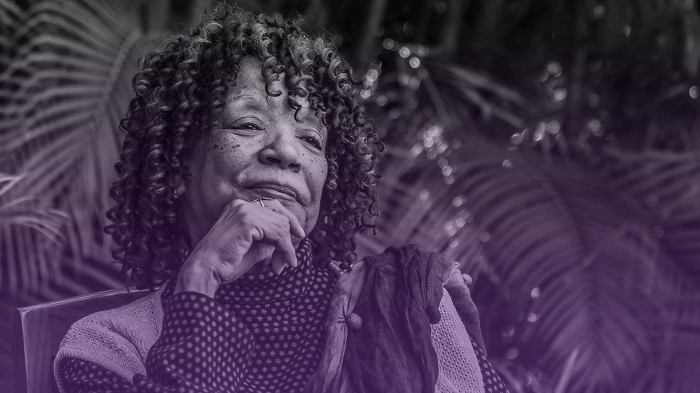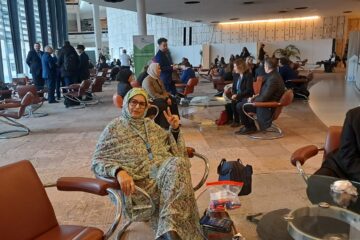“I was born from the Cuban Revolution,” the poet, translator, and literary critic Nancy Morejón recently told Revista Mujeres. She argues that poetry is a common good, an experiment for peace, change, and social justice. Nancy plays an active role in Cuba’s art circles and has been for years the director of the Center for Caribbean Studies of the House of the Americas (Centro de Estudios del Caribe de la Casa de las Américas).
She was awarded four times the Critics Prize for her books Nación y mestizaje en Nicolás Guillén (1982), Piedra pulida (1986), Elogio y paisaje (1997), and La Quinta de los Molinos (2000). She received Cuba’s National Literature Award in 2001 and the Golden Wreath of the Struga poetry evenings in Macedonia in 2006. In 2023, she was expected to be appointed as honorary president of the Paris Poetry Market, but her nomination was withdrawn—which sparked a campaign of international solidarity with her and the Cuban people, who have been suffering with multiple forms of imperialist blockade and pressure. The campaign brought together political organizations from several parts of the world and art collectives including the World Poetry Movement.
“A Black woman who has been for years committed to the struggle for peace, against racism and social and gender inequalities, and for freedom for the peoples”—this is how the Cuban Women’s Federation (Federación de Mujeres Cubanas—FMC) describes Nancy Morejón. The FMC argues that the episode was an expression of political violence. “This is yet another attack in the cultural war against Cuba, against a woman who is with Cuban women, who shares their battles for emancipation, who has dreams and challenges in her poetry beyond our borders,” the federation wrote in a statement.
The International Union of Left Publishers denounced in a statement the conservative sectors connected to the French PEN Club that have exerted pressure to have Nancy’s name withdrawn. “This decision not only goes against all principles of freedom of speech and ideas, but also yields to right-wing demands for censorship and legitimizes the systematic attacks carried out by the US, Europe, and global capitalist interests against Cuban culture and society.”
There were expressions of support on social media, using the hashtag #CubaEsCultura (“Cuba is culture”). To promote access to this culture and support the artistic recognition for women who struggle around the world, here are three poems by Nancy Morejón: “Requiem for the Left Hand,” “Cimarrones”,1 and “Rebirth.”

Requiem for the Left Hand
for Marta Valdés
on a map you could trace all the lines
horizontal vertical diagonal
from the Greenwich meridian to the Gulf of Mexico
that more or less
belong to our idiosyncrasy
there are also great great big maps
in your imagination
and endless globes of the earth
marta
but today I suspect that the tiniest map
microscopic
sketched on school notebook paper
would be big enough for the whole history
all of it.
(Translated by David Frye)

Cimarrones
When I look back
and see so many Black people
when I look up
or down
and those I see are Black
what a joy to see so many of us
so, so many;
here and there they call us ‘minority’
and yet
I still see us
This is what confers dignity upon our struggle
to be out in the world and still see us,
in Universities and Slums,
in Subways and Skyscrapers,
through twists and mutations
sweeping shit
birthing verses.
(Translated by Aline Scátola)

Rebirth
Daughter of the sea waters
asleep in their entrails,
I am reborn from the gunpowder
which a guerrilla rifle
spread on the mountain
so that the world would be reborn in its turn,
that the whole sea would be reborn,
all the dust,
all the dust of Cuba.
(Translated by Jean Andrews)
- In some Spanish-speaking countries in the Americas, Cimarrones are descendants of Black Africans who resisted European rule and slavery and built their own settlements and towns in colonial times, away from the areas where they were enslaved. Today, Black activists continue to use the term to reclaim their history of resistance. [↩]




